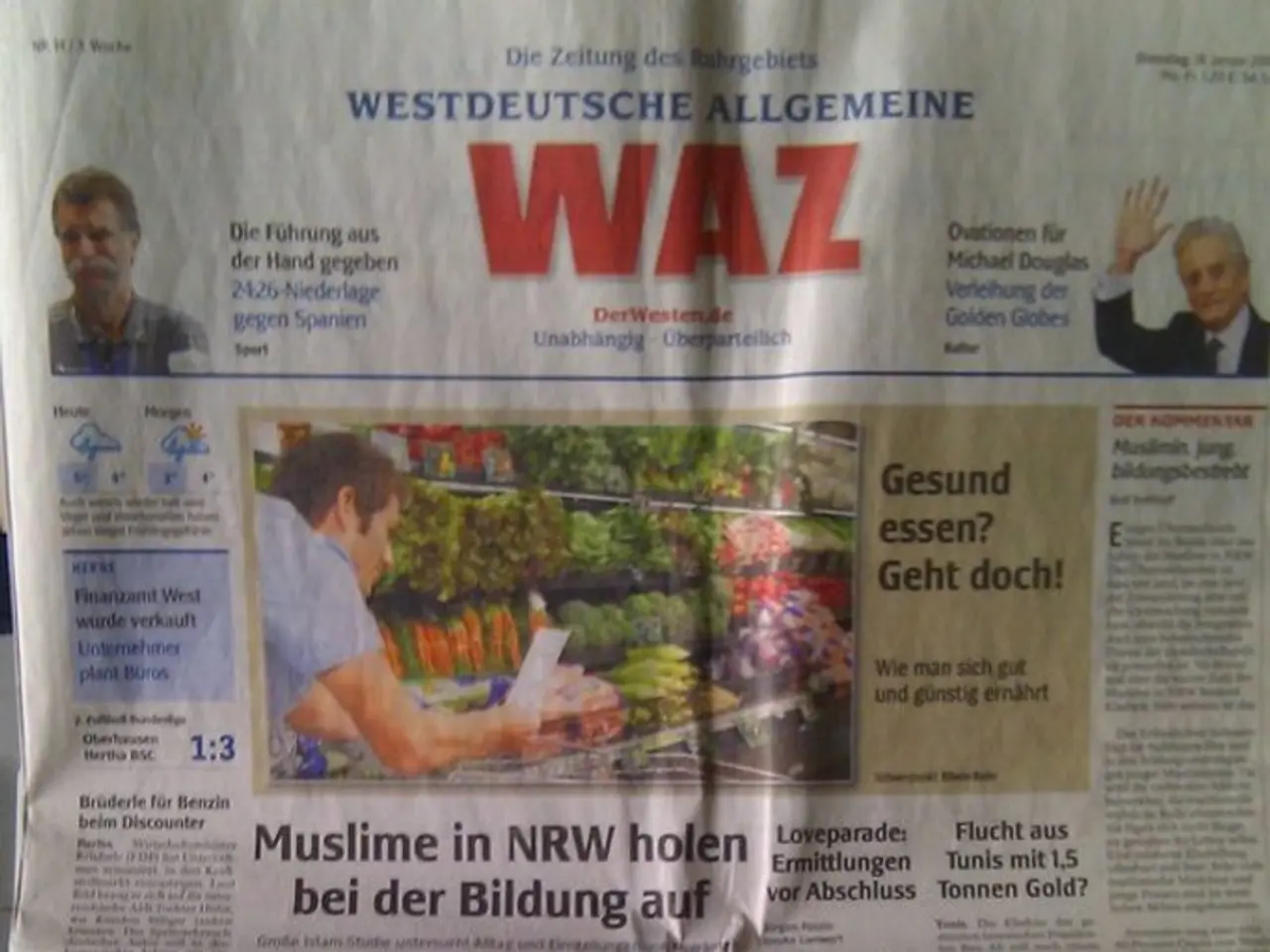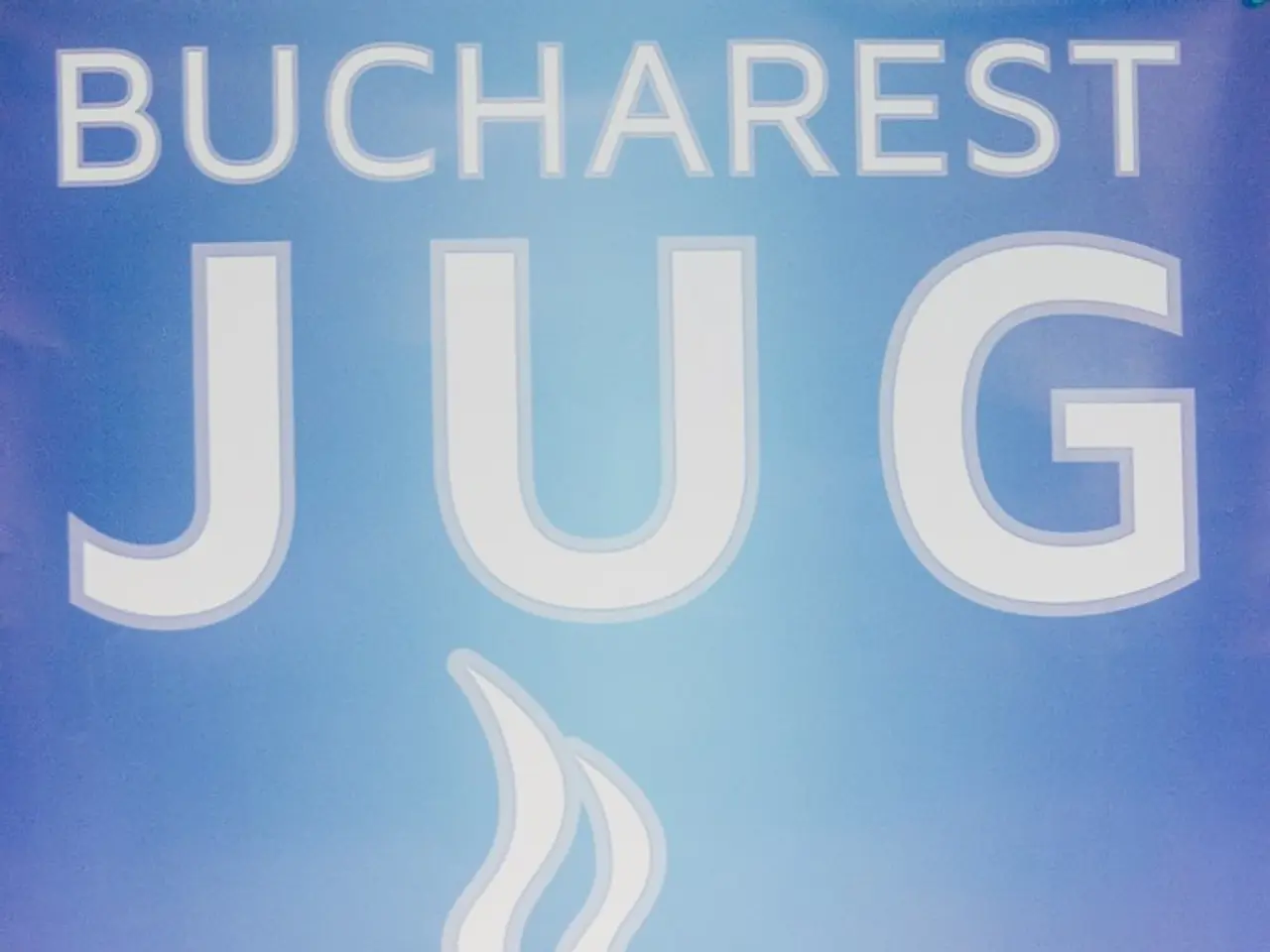Economic changes in Argentina under review
Argentina is embarking on a journey to stabilise and grow its economy, with key strategies focusing on structural reforms, macroeconomic stabilisation, and restoring confidence in international markets. According to Santander Argentina's economists, these strategies align with current government policies and market expectations.
One of the primary strategies is **fiscal austerity and deficit reduction**. The government has implemented a significant front-loaded fiscal adjustment, cutting spending by 5% of GDP, including reductions in subsidies and pensions. This move is expected to lead to a primary fiscal surplus of $740 million in April 2025, marking four consecutive months of surpluses—a historic turnaround.
**Monetary discipline and inflation control** are also crucial. The government aims to end monetary expansion as a financing tool and pursue a disciplined monetary policy. Through subsidy cuts, wage freezes, and liberalization measures, annual inflation is projected to fall from 211% in 2023 to below 100% by the end of 2024, and to 43.5% by mid-2025, with monthly inflation as low as 1.5% in May 2025.
The government also plans to **liberalise and deregulate markets**, introducing greater labour market flexibility and deregulating key sectors to stimulate private investment and job creation. Additionally, the privatisation of state assets is expected to attract portfolio inflows and boost confidence in the private sector as the main engine of growth.
In terms of **exchange rate policy and external financing**, the government aims to abolish the crawling peg to reduce peso overvaluation and balance-of-payments issues, and adopt a floating rate within a pre-determined framework. Securing a new IMF agreement is also a priority to provide foreign-exchange liquidity and reinforce commitment to fiscal discipline and structural reforms.
Building **international market confidence** is another key strategy. The government aims to demonstrate consistent commitment to reforms and fiscal discipline to rebuild trust among foreign investors. Improved debt outlook and access to international capital markets are expected to result from macroeconomic stabilisation and credible policy implementation.
The government is also focusing on **inclusive growth and social indicators**. Poverty reduction and wage and employment recovery are priorities, with early indicators showing a sharp decline in poverty rates and notable increases in real wages and strong growth in private sector employment.
These strategies have set Argentina on a path of stabilisation and renewed growth, with early indicators showing significant progress in fiscal accounts, inflation control, and investor confidence. However, sustaining these reforms amid political and external risks remains a challenge.
The recently inaugurated Vaca Muerta pipeline is a significant development in Argentina's energy sector, aimed at reducing dependence on energy imports and achieving an energy surplus. Boosting exports for key resources like oil, gas, lithium, and agricultural products is a priority for Argentina's rapid growth. Convincing international markets to invest more in Argentina's energy and mineral resources is a key goal to improve the country's financial standing.
Argentina has significant growth potential if it can navigate to a more favourable economic landscape with lower interest rates and less volatile commodity prices. With a capacity to feed 400 million people, the agricultural sector holds immense potential for growth and export opportunities. The focus on energy, mining, and agriculture sectors is a strategic move for rapid growth and economic development in Argentina.
A package of measures, including a 50% devaluation of the peso in December 2023, was implemented to stabilise the economy and reduce inflation. However, the agricultural sector was significantly impacted by a severe drought in 2023, resulting in approximately USD 20 billion in export losses. The agricultural sector is projected to generate an additional USD 15 billion in exports by 2024 due to a significantly improved harvest.
The Head of Corporate Communications, Public Policy, and Economic Research at Santander Argentina is currently prioritising tackling inflation, which reached 211% in 2023—the highest in 32 years. The success of these strategies will depend on the government's ability to navigate these challenges and maintain the momentum for reform.
- The government is focusing on addressing investor concerns by implementing strategies that involve fiscal austerity, monetary discipline, market liberalisation, and exchange rate policy adjustments, all of which are key aspects of finance and business.
- To boost investor confidence and attract portfolio inflows, the government is also prioritizing the privatisation of state assets, improving debt outlook, and securing a new IMF agreement, all of which are integral to investor relations.




